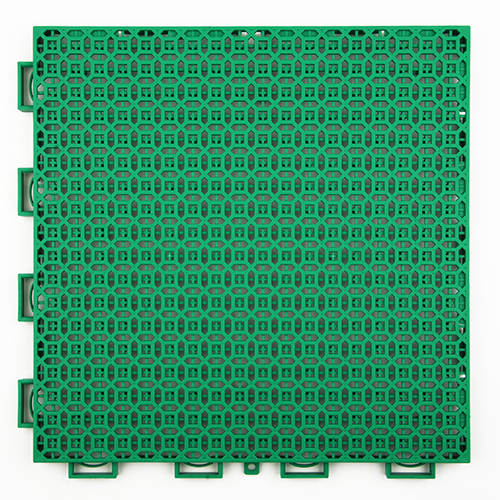Nov . 09, 2024 18:02 Back to list
Sustainable Options for Eco-Friendly Commercial Flooring Solutions
Eco-Friendly Commercial Flooring A Sustainable Choice for Modern Businesses
In today’s world, where environmental awareness is at an all-time high, businesses are increasingly looking for sustainable solutions that lessen their ecological footprint. Among various elements of commercial construction and renovation, flooring plays a significant role. Eco-friendly commercial flooring not only contributes to a healthier planet but also offers numerous benefits for businesses. This article delves into the various types of eco-friendly flooring options available, their advantages, and how they can enhance the overall sustainability profile of modern commercial spaces.
Types of Eco-Friendly Commercial Flooring
1. Bamboo Flooring Bamboo is a highly renewable resource, as it grows much faster than traditional hardwoods—some species can reach maturity in just three to five years. This rapid growth makes bamboo a sustainable choice. Additionally, it’s highly durable and can withstand heavy foot traffic, which is an essential consideration for commercial spaces. Bamboo flooring is available in various finishes and colors, offering versatility to match any design aesthetic.
2. Cork Flooring Cork is harvested from the bark of cork oak trees without harming the tree itself. This renewable resource can be harvested every nine years, making it an incredibly sustainable option. Cork flooring is also known for its sound-absorbing properties, making it ideal for spaces like offices, libraries, and hotels. In addition to its eco-friendliness, cork is naturally resistant to mold and mildew, enhancing indoor air quality.
3. Recycled Rubber Flooring Made from discarded tires, recycled rubber flooring is a durable, environmentally friendly option. It is slip-resistant, absorbs impact, and is easy to maintain, making it perfect for gyms, schools, and other high-traffic areas. By utilizing recycled materials, businesses can contribute to waste reduction while enjoying a long-lasting flooring solution.
4. Linoleum Flooring Linoleum is a biodegradable flooring option made from natural materials such as linseed oil, cork dust, and wood flour. It is a durable and resilient material that can last for several decades, making it not only eco-friendly but also cost-effective over time. Available in a plethora of colors and patterns, linoleum can suit any style while remaining a sustainable choice.
5. Carpet Tiles with Recycled Content Carpet tiles made from recycled fibers or plastic bottles offer flexibility in design and installation. They can be easily replaced individually, reducing waste and maintenance costs. Furthermore, many of these carpet tiles contribute to LEED (Leadership in Energy and Environmental Design) credits, making them a favored option for businesses pursuing green building certifications.
eco-friendly commercial flooring

Advantages of Eco-Friendly Commercial Flooring
1. Improved Indoor Air Quality Traditional flooring materials often emit volatile organic compounds (VOCs) that can adversely affect indoor air quality. In contrast, many eco-friendly flooring options are low in VOCs, helping to create a healthier work environment for employees and customers alike.
2. Durability and Longevity Eco-friendly materials like bamboo, cork, and recycled rubber are often just as durable, if not more so, than conventional flooring options. Their resilience to wear and tear means businesses can enjoy lower maintenance costs and extended lifespans for their flooring.
3. Aesthetic Appeal Sustainable flooring options come in a wide range of designs, colors, and textures that can enhance the aesthetic appeal of commercial spaces. This versatility allows businesses to create inviting environments without compromising their eco-friendly values.
4. Positive Brand Image By choosing eco-friendly flooring, businesses can communicate their commitment to sustainability. This approach not only attracts customers who prioritize environmentally responsible practices but can also motivate employees who value working for a socially conscious company.
5. Long-Term Cost Savings While the initial investment in eco-friendly flooring might be higher, the long-term savings become evident through reduced maintenance costs and longer floor lifespan, making them a smart fiscal choice for businesses.
Conclusion
Incorporating eco-friendly commercial flooring into business environments is a practical step toward sustainability. With various options available, from bamboo to recycled rubber, businesses can fulfil their aesthetic, functional, and environmental needs. By making the shift to eco-friendly flooring, companies not only work towards a healthier planet but also foster a positive, attractive work environment that resonates with both employees and clients. Investing in such sustainable solutions is not just a trend—it's a responsible choice for the future.
-
Premium Running Tracks: Gym, Oval & Custom Sizes Available
NewsAug.09,2025
-
Premium PVC Sports Floor: Durable & Safe Indoor Sports Flooring
NewsAug.08,2025
-
Durable Wood Flooring & Maple | Gym & PVC Vinyl Solutions
NewsAug.07,2025
-
Durable Vinyl Wood Flooring | Best for Home & Sports
NewsAug.06,2025
-
Enlio PFP Sports Court Flooring: Durable & Safe Performance
NewsAug.05,2025
-
Premium Outdoor Court Tiles: Durable & Slip-Resistant
NewsAug.04,2025

